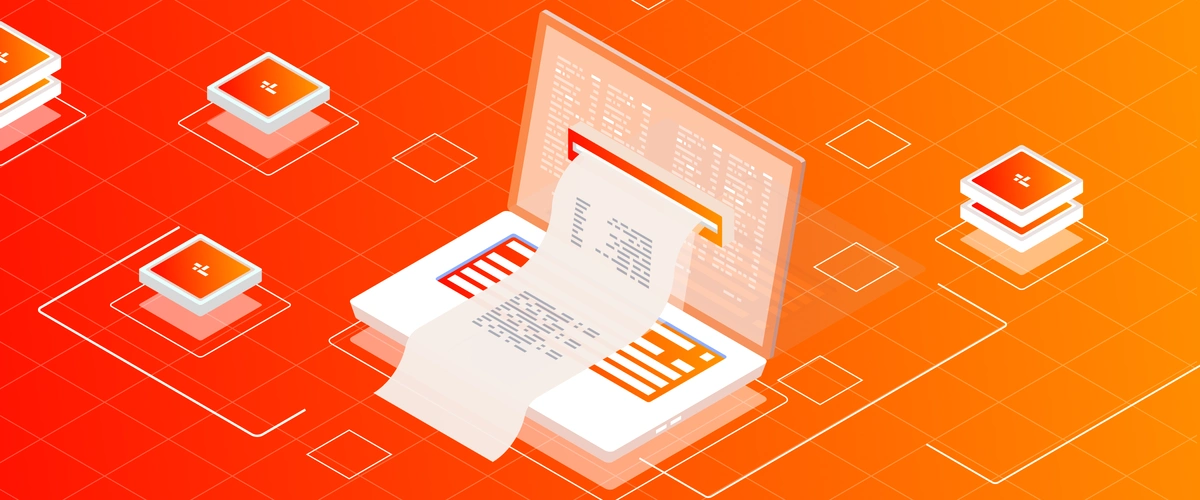Re-engineering document and process management system
How to Choose the Right Billing System for Your SaaS Business | Aionys

The billing system not only keeps the customer’s balance and account but also is deeply integrated into a business. It provides traffic control, manages the procedure for providing access to services, provides the client with a report on expenses in different sections – for a month, for a year, or from the time of the last payment.
Today we’ll talk about how to manage the process of accepting money and what you need to pay attention to when choosing a billing system to avoid problems and possible losses.
Why a Billing System is Important for My Business
Billing systems can be very useful for your Saas business that conducts electronic business operations. This can make the billing process easier, which will help you increase your company’s revenue.
At the same time, you should choose the right billing system carefully, because different products have both pros and cons. If you choose a billing system that is not very suitable for your business, you can lose time and money.
What Features Should The Right Billing System Have
Under its purpose, the billing system contains data the disclosure, loss or distortion of which could cause you irreparable damage or your customers. Therefore, the billing system should provide:
- protection against access to data by unauthorized users
- protection against intentional distortion or access to data by dishonest employees of the operator using low-level tools
- logging of all "important" user actions performed using standard billing system tools. Moreover, "important" are all actions related to entering or changing data, as well as viewing certain types of data, for example, credit card numbers
- built-in data integrity control
- archiving and data recovery tools.
What Approaches for Choosing a Billing System
The first approach is that you develop the billing system yourself. The undoubted advantage of this method is the ability to achieve full compliance with your needs and deep integration with other information systems and technical means of the network.
Unfortunately, world statistics show that the costs of such a solution (taking into account subsequent maintenance and modification) are 2.5 to 5 times higher than the costs of purchasing and implementing a replicated solution.
The second approach requires the purchase of an integrated business operational support system from a single supplier. Alas, there are certain problems in this case. In its further development, the company becomes a hostage to the "main" provider of the information system, as the opportunity to use the best-in-class solutions is lost. Even in the case of local problems, the entire information system will have to be changed.
The third approach is to use the business component method to build an enterprise information system. This method is based on three main principles:
From our point of view, this method allows you to optimally combine the low cost of replicated systems and the need to meet the unique requirements of individual operators through custom components.
At the same time, the functions of the "assembly" can be performed by both its information technology division and the company, the system integrator.
Should My Billing System Have an Integrator?
Choose not only billing but also an integrator. Developed companies usually choose a new billing system to replace the old one. The transfer of long-term information, integration, restructuring of business processes and training will take months, and during this time, millions of customers should not notice the difference in service.
The transition to a new system on their own is fraught with a failure to meet deadlines, panic and a series of mistakes. Put this burden and responsibility for the project on the shoulders of the integrator.
If he already had an experience of such a transition, there is nothing else to do but adapt the already-debugged work scheme to your business. Thorough preparation for implementation is also a kind of billing platform, without which even an advanced program with a wide range of functions would be unsuitable for work.
What are the Fees For a Billing System
For a billing system, fees come in several categories, all of which could have a large impact on your bottom line:
What are the Fees For a Billing System For a billing system, fees come in several categories, all of which could have a large impact on your bottom line:
1. Setup Fees: These are one-time costs associated with the initial implementation of the billing system. This can include customization, integration with existing systems, and training for your staff.
2. Subscription Fees: Many billing systems operate on a subscription basis, charging a recurring fee (monthly, quarterly, or annually). This fee often varies based on the number of users, the volume of transactions, or the level of features required.
3. Transaction Fees: Some billing systems charge a fee for each transaction processed. This is particularly common in payment gateways or systems handling large volumes of microtransactions.
4. Maintenance and Support Fees: Ongoing support and maintenance fees cover updates, bug fixes, and customer support. These can be essential for ensuring your billing system remains secure and operates smoothly.
5. Additional Features and Upgrades: If you need advanced features or custom functionality beyond the standard offering, these will often come with additional costs. This can include modules for advanced reporting, analytics, or integrations with other business systems.
6. Data Migration Fees: If you're moving from an existing system to a new billing platform, there may be costs associated with migrating your data. This can include data cleaning, conversion, and validation processes.
7. Compliance and Security Fees: Depending on your industry, there may be additional fees to ensure the billing system complies with regulatory requirements (such as PCI-DSS for payment processing). Enhanced security features, such as fraud detection or encryption services, might also incur additional costs.
8. Customization Fees: If your business requires specific customizations or bespoke solutions, there will likely be additional charges. This can involve tailoring the user interface, adding specific workflows, or integrating with unique business processes.
9. Training Fees: While initial training might be included in setup fees, ongoing or advanced training for new employees or for new features might come with extra costs.
10. API Access Fees: For businesses that require integration with third-party applications or custom solutions, there may be fees associated with accessing and using the billing system's API.
11. Hosting Fees: If the billing system is hosted on-premises, you might incur costs for the necessary hardware and infrastructure. For cloud-based solutions, there may be hosting fees based on usage, storage, and data transfer.
Understanding these fee categories and how they apply to your specific needs is crucial for selecting a billing system that fits within your budget and provides the necessary functionality and support for your business operations. Always request a detailed fee breakdown and consider the total cost of ownership over the long term when evaluating different billing systems.
Conclusion
The choice of billing is an important stage in the life of any operator because this system will be a crucial part of the whole business. Therefore, the analysis of possible options should be approached responsibly.
A variety of different aspects (not only cost) will affect your success with the chosen system, especially if your business scales over time.
- In touch 24 hours a day, 7 days a week
- Individual attitude to clients
- Unique solutions for each project
- Flexible adaptation to needs
- Support in Critical situations
 Alexey
Co-Founder & CEO
Alexey
Co-Founder & CEO
 Ivan
Co-Founder & CTO
Ivan
Co-Founder & CTO
-
alexey.grebennikov@aionys.com
-
10:00AM - 07:00 PM GMT+2
-
ivan.korytin@aionys.com
-
10:00AM - 07:00 PM GMT+2




